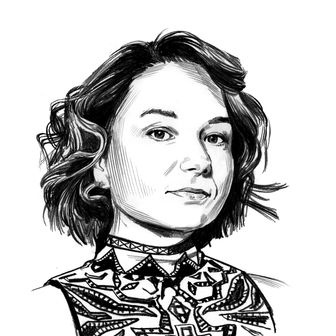At the beginning of Hamilton’s second act, Okieriete Onaodowan and Daveed Diggs inhabit the roles of James Madison and Thomas Jefferson, respectively, for a rap battle against Alexander Hamilton in defense of the South’s economic independence. It includes what might be the show’s most withering condemnation of the chattel slavery America’s wealth was built on, but also features two Black men portraying characters that, in real life, were white slave owners. This, along with a few glaring omissions, has led to a lot of complicated feelings about whether the show softens the reality of slavery, criticisms Lin-Manuel Miranda himself validated in a recent tweet:
In the latest episode of Two Friends: A Nice Time Hanging Out With People Who Know Each Other Well, a fan question midway through prompted some reflective thoughts from Onaodowan and Diggs on the show’s depiction of slavery. Diggs said that when he agreed to do the show, he believed the work illustrated the founders’ flaws as well as their achievements. “To me, what the show is implying is that like, there are words and actions of people that are still instructive for us and also the things we don’t agree with are also instructive for us,” he offered, pointing out that even the show’s namesake is presented as a womanizing man partially responsible for the death of his son. “Before people knew about my politics, I would have people coming at me about like saving a Jefferson statue and I would be like ‘Tear that motherfucker down,’” he continued. Onaodowan suggested the show’s revolutionary theme can serve as an inspiration for people looking to make radical change in an unjust society, while acknowledging that the show’s blind spots present an interesting challenge: “In the inception of our show, by the omission of that story, it kind of highlights the problem.” He later added, “It’s getting black kids interested in history to ask the question why they aren’t in history.”
“I definitely appreciate everybody questioning it, and I think we should continue to do that, and hold our creators accountable, and hold our creative spaces accountable,” Diggs said. “You know, there’s also the issue of like, what did Lin and Tommy and Jeffrey Sellers, and a whole crew of mostly white producers have the capacity to tell honestly? What parts of the story were ones that they could comment on in any sort of real, grounded way?”
The entire conversation is well worth a listen, and they also did fit in some lighter fare as well (a cameo from a real-life painting once owned by spitty king Jonathan Groff, for starters.) And if you enjoyed this episode, follow Vulture on Instagram to be alerted to future conversations between friends in quarantine.


